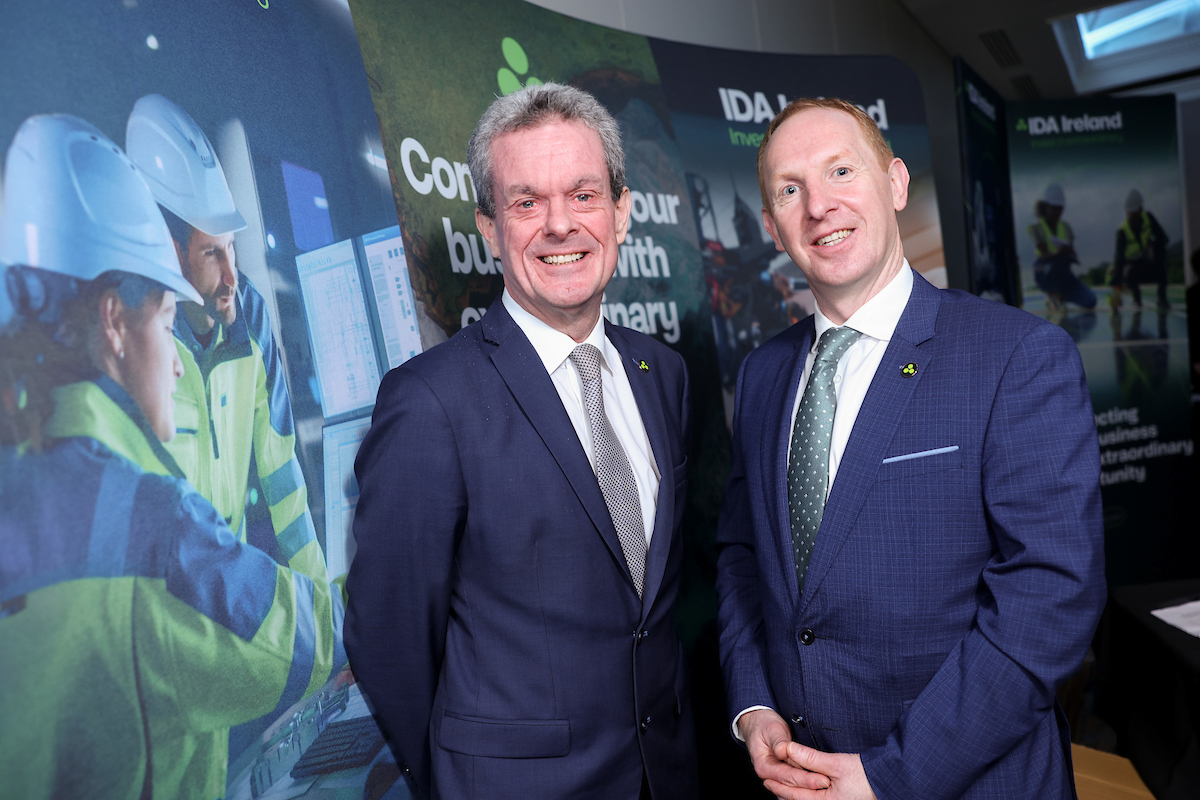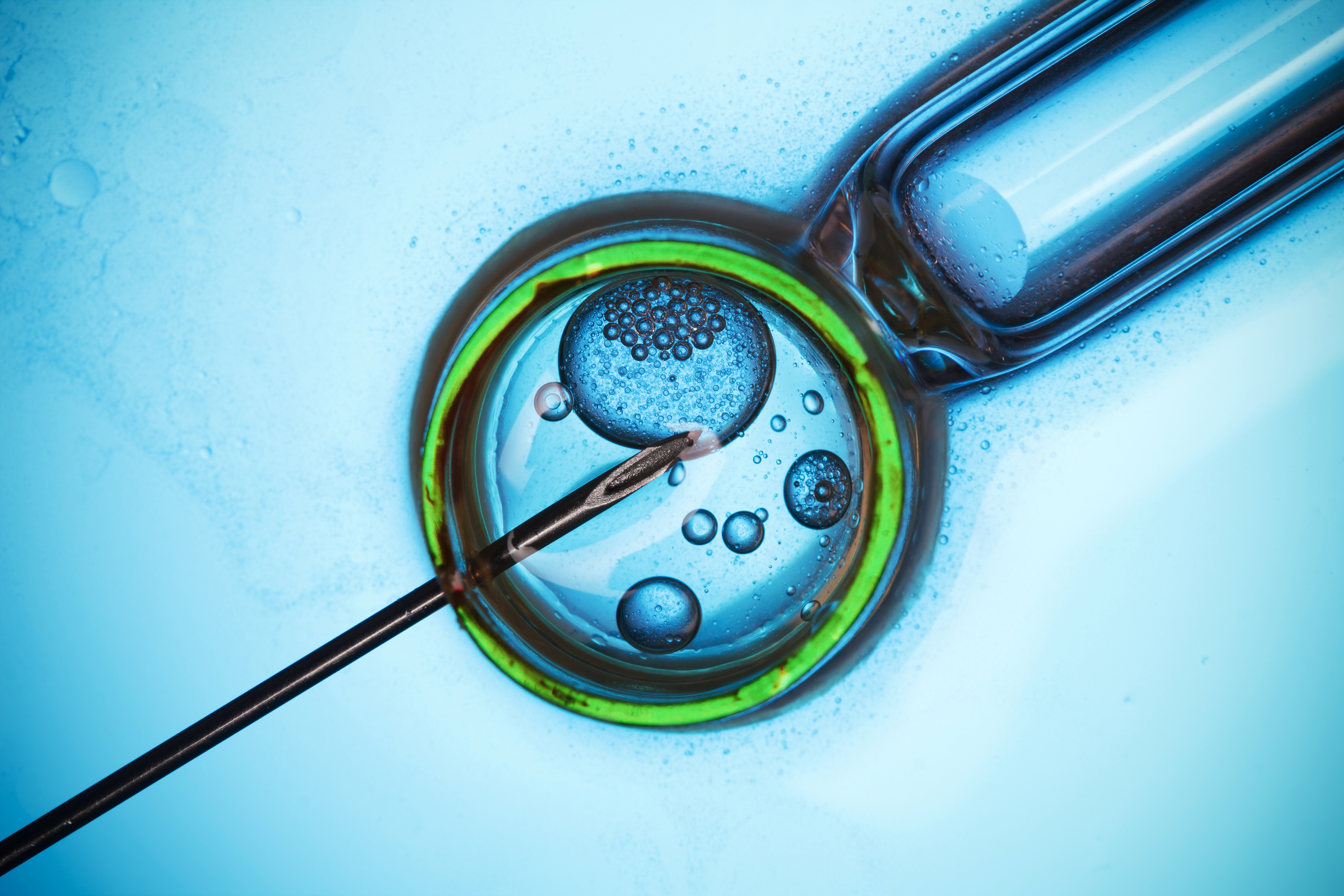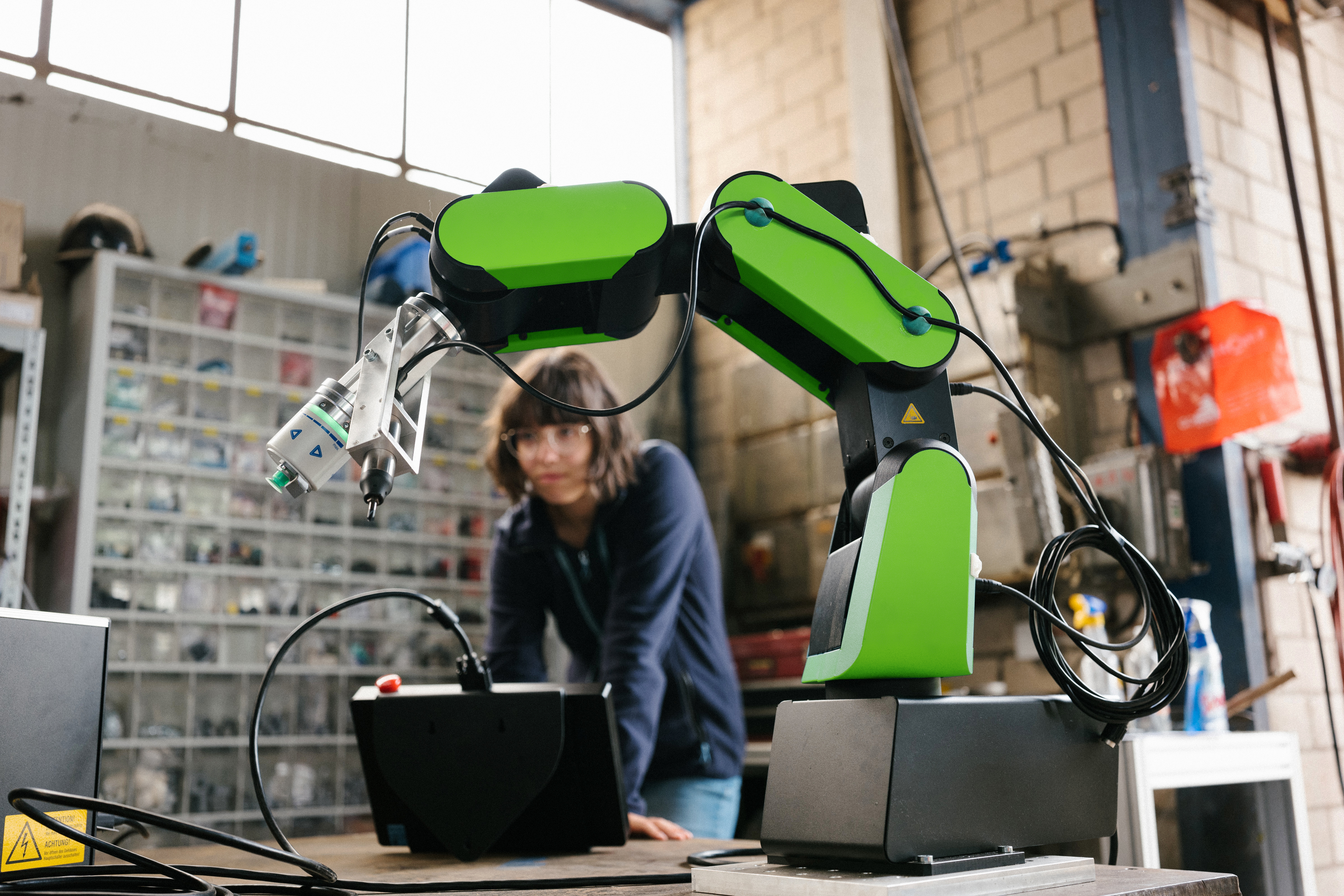Chairperson and CEO Overview
2024 saw the conclusion of IDA Ireland’s 2021-2024 strategy, Driving Recovery & Sustainable Growth. Over the strategy, IDA Ireland supported the delivery of 973 investments and creation of 76,790 jobs, or 121% and 153% of respective targets. The strength of this performance provides an enviable base from which to launch our new strategy and continue to deliver for our clients and for the people of Ireland.In 2024, IDA Ireland won 234 investments with associated future job creation of 13,500. Employment in IDA Ireland client companies reached 302,566, marking a third consecutive year at a level above 300,000, with regional employment at a record high of 165,484.
Beyond employment, the impact of MNCs is felt across the economy, with increases in payroll, spend on Irish materials and services, and RD&I investment, and significant levels of capital expenditure. Given the uncertain global economic context, these results are a testament to the dynamism of IDA Ireland client companies, the expertise and commitment of the IDA Ireland team, the support from Government and stakeholders, and the continued appeal of Ireland as a place to grow and succeed.
The strength and impact of Ireland’s FDI base across all regions makes it a key national asset that must be supported. IDA Ireland will partner with our client companies to strengthen long term investment, seeking to broaden mandates, increase skills, and future-proof Irish operations. We will advocate for improvements in the enabling environment to ensure Ireland remains an attractive location for investment. We will also continue our close collaboration with the Department of Enterprise, Tourism & Employment, with Enterprise Ireland, Research Ireland and with the range of national and local stakeholders that are crucial to our success.
As is evident today, the coming years will be marked by turbulence and change. The open era of free trade is under pressure with regionalisation, protectionism, uncertainty around international tax, and a revival of industrial policy coming to the fore. Competition for FDI continues to increase, as more countries compete for fewer investments and as the scale and impact of projects grows ever larger. The acceleration of the interlinked digital and green economic transitions dominates, changing not only the investment landscape but the ways we work and live.
But, with change, comes opportunity. As part of our new strategy, Adapt Intelligently: A Strategy for Sustainable Growth and Innovation 2025-2029, IDA Ireland has identified four key growth drivers for investment in Ireland - Digitalisation & AI, Semiconductors, Sustainability, and Health. These are areas closely aligned with our existing FDI sectors, with strong growth prospects, of critical importance to Irish, European, and global economies, and where Ireland has a strong competitive advantage.
Ireland is thankfully approaching this uncertain future from a position of strength. The main challenges we face are in executing Ireland’s infrastructure plans over the next five years, and ensuring continued competitiveness across capacity, cost, and regulation. The priority areas for IDA Ireland are housing, energy, water, grid, broader infrastructure, and the planning system. While there has been progress made, continued focus on and acceleration of delivery will be crucial if we are to make substantial improvements. We welcome the strong commitment of Government to addressing these challenges as laid out in the Programme for Government and demonstrated in the development of a national Competitiveness and Productivity Action Plan.
As we begin our new strategy, we are at a critical junction for FDI and for Ireland. Whilst acknowledging the risks to the global economic outlook, our strategy remains ambitious. Companies are looking for locations that can deliver on cost, capacity, capability, and stability. We believe Ireland is that location, backed up with the talent, the ecosystem, and the business environment to support that belief.
 FDI Performance in 2024
FDI Performance in 2024
IDA Ireland’s portfolio now comprises more than 1,800 MNC operations across a diverse range of sectors. Employment in 2024 remained steady, gaining a net 601 jobs for direct employment of 302,566 people, circa 11% of total national employment for a third consecutive year. In the circumstances, this is a great benchmark to be able to maintain.Regional employment increased to 165,484 jobs, the highest figure on record, accounting for 55% of overall client employment. Most regions saw an uptick in employment. Gains were strongest in the Mid-West (+3.1%), South-East (+2.3%) and Border (+2.2%) regions with marginal changes seen in Dublin (+0.07%), the West (+0.15%), the Midlands (-0.45%) and the South- West (-0.2%). Meanwhile, the Mid-East (-3.8%) saw employment decline.
IDA Ireland delivered strong results in 2024, attracting 234 investments (of which 69 were new names, 56 were expansions and 109 were transformation investments) with associated future job creation of 13,500. 59% of investments (137) went to regional locations, a standout performance signifying the strength of our regional value proposition.
2024 also saw a record level of investment in transformation across RD&I, sustainability, and talent development, aligned with IDA Ireland’s strategic focus in these areas. In RD&I, IDA Ireland clients committed a record €1.9bn across 64 projects in all sectors.
In sustainability, IDA Ireland supported 31 investments targeting decarbonisation and growth in green economy value chains. This resulted in a commitment to more than 31,000 tonnes of C02 abatement, supporting Ireland’s overall aim of achieving a 35% reduction in enterprise emissions by 2030.
In talent development, IDA Ireland supported 27 projects with associated client spend of €118mn, a 26% increase on 2023. As availability of talent is a key driver of investment and growth, increased momentum in talent development is critically important for retaining and renewing the FDI base.
 Impact of FDI
Impact of FDI
IDA Ireland clients have significant impact on the Irish economy and society. In 2023, total IDA Ireland client expenditure amounted to €38.6bn (+6.5% on 2022 [Annual Business Survey of Economic Impact (ABSEI) 2023]). This equates to €11.3bn on Irish services, €3.3bn on Irish materials, and €23.9bn on payroll. IDA Ireland clients continued to invest in capital expenditure, with €13.2bn spent, driven by the delivery of major projects of scale, particularly in Life Sciences and Technology.Client in-house RD&I spend rose to €9bn (+26.2%), reflected in the uptick in overall RD&I activity across the portfolio. Exports grew to €421bn in 2023 (IDA Ireland calculations based on ABSEI data and Central Statistics Office (CSO) external trade data.), representing about 70% of overall national exports, driven by the high value nature of goods and services produced by IDA Ireland clients in Ireland.
IDA Ireland clients also make significant contributions to the Irish economy via taxation. In 2023, sectors led by IDA Ireland clients accounted for approximately 75% of corporation tax receipts (IDA Ireland calculations based on Revenue Corporation Tax Payments and Returns).
 Regional Development
Regional Development
Balanced regional development is a key goal for the organisation. IDA Ireland clients in regions support more than 165,000 jobs and spend more than €19bn annually in the Irish economy (IDA Ireland calculations based on the 2024 Annual Employment Survey and 2023 ABSEI data. Irish economy spend accounts for payroll and Irish materials and services).In 2024, IDA Ireland supported 137 regional investments, achieving 143% of our target. These investments consisted of new names, expansions, investments of scale, and transformation across manufacturing, RD&I and business services.
This success can be attributed to strong stakeholder engagement, spanning communities, enterprise, and local government, alongside efforts to develop a robust property and infrastructure ecosystem to support enterprise growth.
IDA Ireland’s Regional Property Programme provides land, buildings, and infrastructure to meet the needs of current and prospective clients of IDA Ireland and Enterprise Ireland, with continuous investment ensuring the property portfolio is suitable for attracting investments.
As part of our new strategy, IDA Ireland proposes to develop three Next Generation Sites, providing fully serviced sites in regional locations for investments of scale.
 New Strategy
New Strategy
IDA Ireland’s new strategy, Adapt Intelligently: A Strategy for Sustainable Growth and Innovation 2025-2029, was launched in February 2025 following a 12-month development process involving extensive engagement across clients, Government, economic and FDI experts, national and regional stakeholders, and the IDA Ireland team. The strategy responds to key structural forces reshaping the global FDI landscape including deglobalisation, digitalisation and decarbonisation, in alignment with the White Paper on Enterprise, the Programme for Government, and a range of other governmental strategies.The strategy outlines four strategic objectives:
Strengthening long term investment
IDA Ireland will prioritise retaining and uplifting our 1,800+ client companies, partnering with them as they aim to enhance competitiveness and productivity through transformative talent development initiatives and assisting them in navigating challenges and seizing opportunities in a changing global economy.
Scaling cutting-edge innovation
IDA Ireland will build on the existing innovation ecosystem (e.g., Tyndall, NIBRT, DMI), enhance pan-European and global innovation linkages, and increase the scale and impact of innovation by supporting nextgeneration and collaborative research, development, and innovation.
Driving sustainable change
IDA Ireland will collaborate with clients to enhance their digital maturity and sustainability, while attracting a new wave of green and digitally enabled investments.
Maximising regional opportunities
IDA Ireland will seek to maintain the strategic strength of Dublin as an international FDI hub whilst striving to ensure balanced regional development across the country, via initiatives such as Next Generation Sites.
With these overarching objectives in mind, IDA Ireland has set high level targets to attract 1,000 investments over the lifetime of the strategy, of which 550 are allocated to regions, upskill 40,000 people, deliver €7bn in new RD&I projects and create 75,000 jobs.
Policy advocacy, collaboration and organisational evolution are key enablers underpinning our strategy. IDA Ireland will continue to advocate on key national policy issues such as housing, energy, and water infrastructure delivery, as well as European issues such as industrial policy and balanced regulation. Likewise, effective collaboration both at a system (DETE, EI) and local stakeholder (universities, research centres) level is of utmost importance.
Internally, and aligned with our vision to be the world’s best investment promotion agency offering extraordinary opportunities to global companies, IDA Ireland will develop its organisational capability to enhance the client experience and improve available supports for investment in strategic sectors and activities. A priority for IDA Ireland is to ensure that our engagement with client companies is efficient and responsive and we are taking steps to drive simplification and reduce administrative burden in line with the Government's focus on better regulation.
 FDI Outlook
FDI Outlook
In the first half of 2025, IDA Ireland has delivered a strong performance in investments and job creation, with projects in RD&I, talent development and sustainability performing particularly well.IDA Ireland is also playing a role in responding to the changing global tariff environment, maintaining close contact with clients as they assess the impact of the new tariff regimes. We will continue to provide input from an FDI perspective to inform Ireland’s response through DETE and other channels, such as the Government’s new Trade Forum.
Beyond the immediate challenges, FDI is being shaped by trends in digitalisation, deglobalisation/ regionalisation, decarbonisation, and demographics. These trends are creating disruption and opportunity across all sectors of the economy and across the globe. They provide the context in which IDA Ireland identified the key growth drivers for our strategy and are well aligned to the core sectors in Ireland’s existing FDI base, shaping IDA Ireland’s continued focus on attracting new investment to Ireland.
 Competitiveness
Competitiveness
Given Ireland's position as a small, open economy in a world of growing uncertainty, we must hone in on areas where we can make a tangible difference.The Programme for Government 2025 places a strong focus on bolstering Ireland’s enterprise economy, on free trade, and on competitiveness and innovation, all of which are crucial for attracting investment. The fast-tracked development of a national Action Plan on Competitiveness and Productivity is another welcome step towards concrete reforms that enhance Ireland’s competitiveness.
Ireland must continue efforts to control the controllable, focusing on addressing key national priorities such as infrastructure gaps in housing, energy, water, and public transport to enhance Ireland’s cost competitiveness and attractiveness for FDI. Swift implementation of national strategies, both broad-based such as the National Development Plan and White Paper on Enterprise, and sector-specific, including AI and Semiconductors, is required to ensure continued momentum in key growth areas. Development of the new national Life Sciences strategy is also vital.
Housing remains a key issue, despite notable progress on delivery of housing supply in recent years. Revised targets, reflecting population growth, and record levels of Government expenditure are welcome steps forward and it is crucial that delivery is accelerated to meet rising demand.
On energy, we need a reliable supply that meets demand at competitive prices. Ireland’s electricity prices are high compared to other European countries, putting us at a competitive disadvantage. We need to deliver significant investment in grid infrastructure alongside enabling policies, including private wire. Ireland’s renewable energy outlook is strong but managing the transition while improving cost competitiveness is a key challenge.
Water supply faces numerous pressures associated with legacy infrastructure and growing demand from industrial and population growth. Acceleration of critical infrastructure and capacity development, such as the Eastern Midlands Water Supply Project, will allow water to remain an enabler of FDI in the future, but we must also ensure that the cost of upgrading legacy infrastructure does not result in competitiveness pressures.
Transport infrastructure is critical for the movement of people and goods, with sufficient international capacity and route connections crucial for growth. Enhancements to national transport services are also necessary, focusing on public transport, expanding key road networks, and implementing active travel measures. Delivery of the Dublin Metrolink is also critical to ensure our capital remains competitive internationally.
Improving the planning system will support these factors. The National Planning Framework and National Development Plan, which address capacity constraints and population growth, must also enable growth in Ireland’s enterprise base. Commencement of the Planning and Development Act 2024 is critical to benefit from efficiency targets in the planning system.
Beyond these national priorities, IDA Ireland aims to leverage the emergence of a more active European industrial policy and focus on regional competitiveness. The EU Competitiveness Compass outlines a strategic roadmap for European economic growth and competitiveness in areas such as innovation, decarbonisation, and strategic autonomy, which are well aligned to Ireland’s strengths and IDA Ireland’s strategic growth drivers for FDI.
Tax and incentives must work to deliver for strategic priorities. On tax, IDA Ireland will continue to advocate for improvements to the R&D tax credit and the introduction of new tax reliefs for activities in innovation, sustainability, and digitalisation. On incentives, IDA Ireland will partner with DETE to proactively anticipate and respond to opportunities arising from changes in EU state aid and funding approaches in areas of strategic importance for Ireland. While this remains only one part of our offering, given the profound shift in the global landscape Ireland’s incentives approach needs to evolve to include targeted and specific support for priority sectors and activities.
IDA Ireland will also continue to advocate for regulation that enhances Irish and European competitiveness and avoids hindering innovation.
 Conclusion
Conclusion
2024 has been another good year for FDI in Ireland. FDI has been a cornerstone of Ireland’s economic success for decades and despite current uncertainty, we are in a strong position for this to continue. IDA Ireland has identified key areas for growth across the next five years, and we are confident in our ability to deliver.Effective action and execution are paramount, whether it be on infrastructure delivery or the development and implementation of EU and national legislation. In tandem with engagement on these matters, IDA Ireland will be laser focused on the implementation of its new strategy, working to deliver investment, innovation, and employment for Ireland.
We are grateful for the ongoing support of DETE, the wider Government system, and our clients and stakeholders across the country, and we look forward to our continued collaboration in the years ahead.
